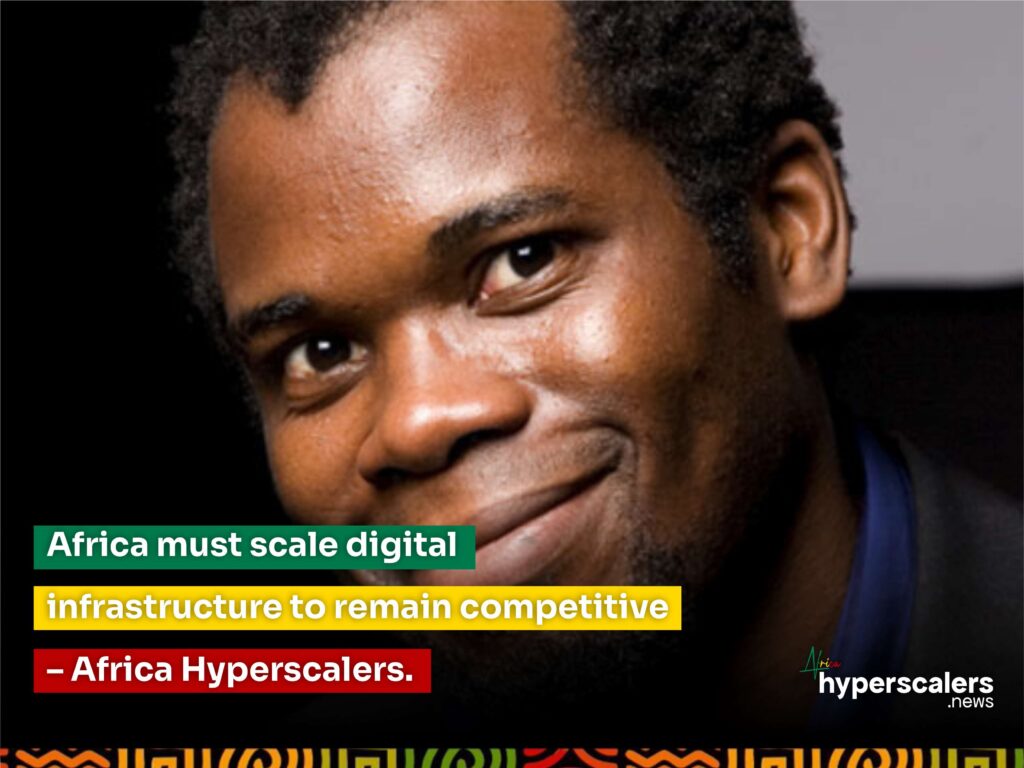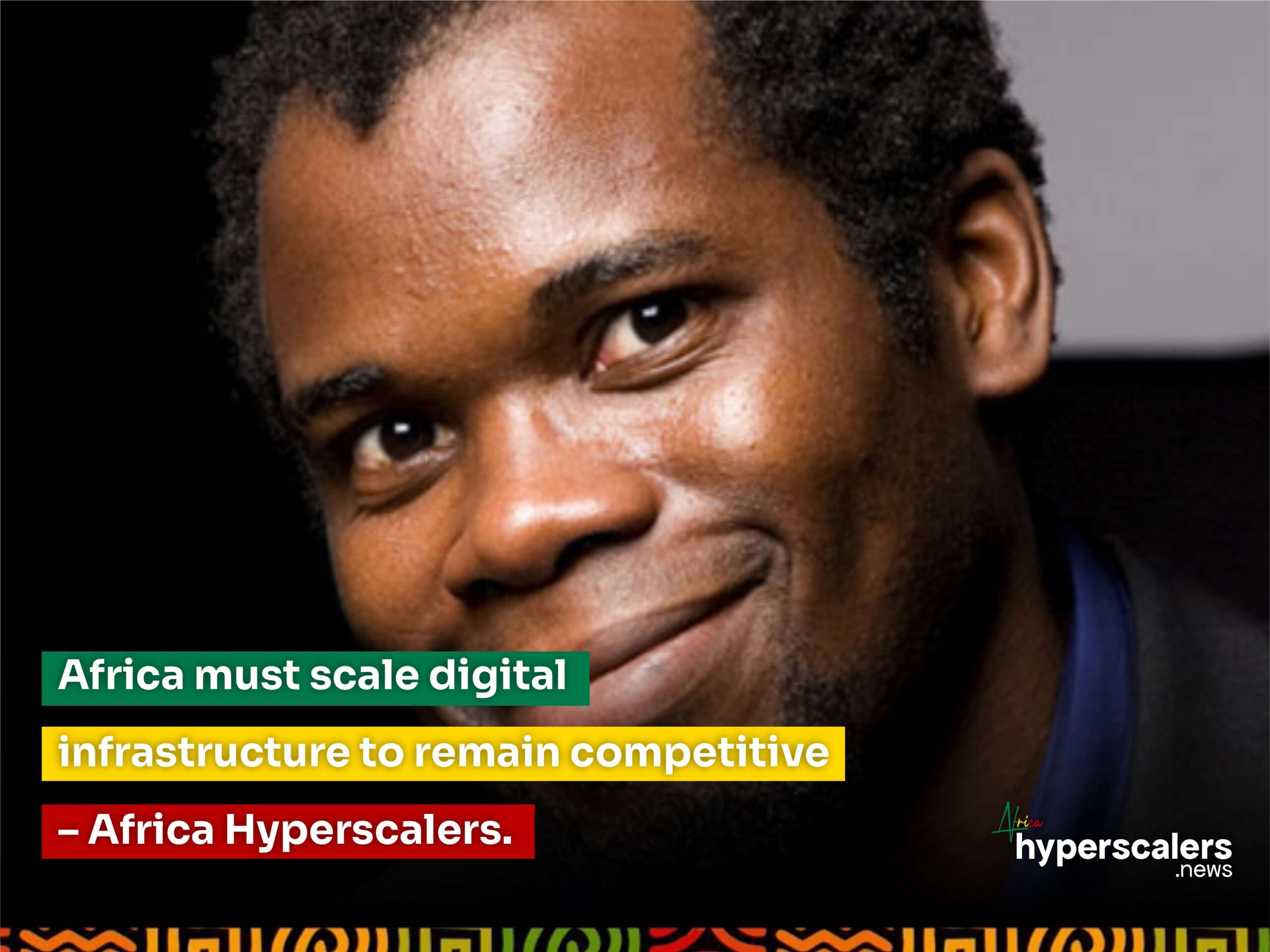Industry experts at the Africa Hyperscalers Digital Infrastructure Outlook emphasized the critical need for Africa to scale its digital infrastructure to remain competitive in the global economy. In his market brief presentation, Guy Zibi, Managing Partner of Xalam Analytics, highlighted how Africa’s digital economy, valued at approximately $150 billion (less than 5% of the continent’s GDP), is powered by an extensive network of cell towers, fiber connections, and data centers. This infrastructure is essential for transforming productivity, and industrial processes, and fostering economic growth. Over the past five years, the continent’s digital infrastructure has improved considerably, with broadband connections nearly doubling, reaching 700-800 million. The length of terrestrial fiber is also growing, nearing 1.5 to 2 million kilometers, complemented by submarine cables and expanding public cloud regions.
Africa’s international bandwidth capacity has also surged, outpacing regions like Asia and Latin America, while fiber networks expand and new data centers continue to emerge. Approximately 40 new data centers are expected to be built between 2022 and 2030, further accelerating the continent’s digital transformation. However, experts caution that without continued investment and innovation, Africa may struggle to reach its full potential in the digital landscape.
Zibi emphasized the critical need to further scale digital infrastructure. Currently, only 35% of Africa’s 1.4 billion people have meaningful broadband access, with 20-30% still unconnected and 40% unable to afford it. This gap in accessibility creates a significant challenge to fostering widespread digital inclusion. Increasing broadband penetration to 60-70% over the next five years is essential for Africa to boost its global competitiveness. This will require further investment in towers, fiber, and overall infrastructure, as Africa’s digital economy currently represents a smaller share of GDP compared to other regions, where the digital economy can exceed 10%, with outliers like Brazil surpassing 20%.

To achieve these goals, Zibi emphasized the importance of three key factors: AI, capital expenditure (CapEx), and return on investment (ROI). AI presents a massive opportunity for the continent, with the potential to revolutionize various sectors in the next five years. However, experts urged Africa to focus on leveraging AI in practical applications, rather than investing heavily in costly large language models (LLM) training. Initiatives such as DeepSeek AI, which promotes open-source technologies, could provide more cost-effective solutions tailored to Africa’s needs.
AI infrastructure requires significant investment, and hundreds of billions of dollars are being poured into global AI efforts. Collaboration between the public and private sectors is essential to secure the funding needed for AI and cloud infrastructure expansion across Africa. Investment in power and data centers will also play a key role in supporting this growth. To ensure the long-term success of infrastructure projects, it is crucial to focus on reducing delivery costs while maintaining affordable services for users. Innovations in financing models could attract further investment, driving both profitability and sustainable development.
The event featured notable speakers from across the industry, including Abibat Kazeem, Commercial Lead at Bayobab; Dr. Coker, CEO of Open Access Data Centres; Guy Zibi, Founder/Managing Partner at Xalam Analytics; Johnson Agogbua, CEO of Kasi Cloud Data Centres;
Kashifu Inuwa Abdullahi, Director General, National Information Technology Development Agency (NITDA); Obinna Isiadinso, Data Centers Global Sector Lead, International Finance Corporation, and Olabode Ojo, Vice President, Global Independent Connect Limited (GICL), IHS Towers. Their insights underscored the importance of continued investment in Africa’s digital infrastructure to unlock the continent’s full potential and compete effectively on the global stage.
The Digital Infrastructure Outlook, an annual event hosted by Africa Hyperscalers, brings together industry leaders, experts, and stakeholders to discuss Africa’s evolving digital infrastructure. It explores key trends, challenges, and opportunities shaping the continent’s digital future, including the surge in data center services demand, growing cloud adoption, and expanding connectivity. The event serves as a platform for sharing insights, fostering collaboration, and addressing the foundational drivers of digital infrastructure growth across Africa.





